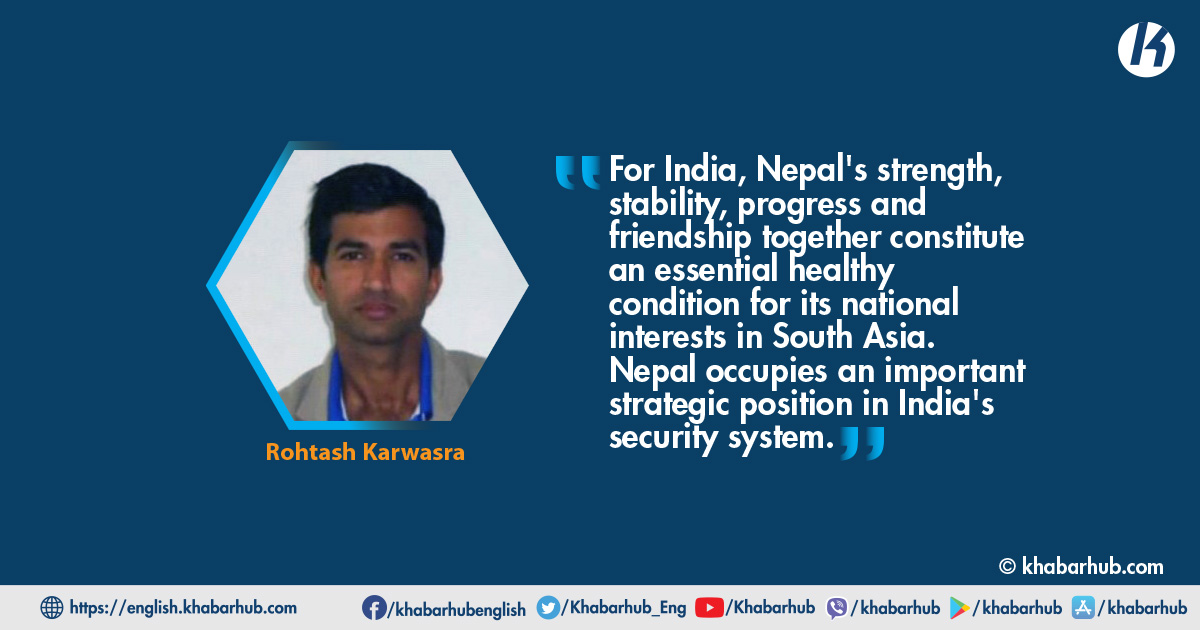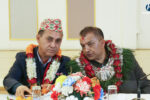“In language and religion, Gods and Goddesses, food and clothing, history and culture, Nepal and India have more in common with each other than with any third country of the world” – Dr M.S. Rajan.
These words describe the Indo-Nepal relations beautifully. Both of them share an ancient civilization and culture. They are tied by the silken bonds of geography, history and culture.
Geographically the two countries form one Geographic unit. Each one can be regarded as territorial extension of the other.
With the existence of an open boundary between them, the people of the two countries have developed almost a shared living in the border areas.
Historically, the two countries have virtually the same history till the recent times. The two countries originated from the same source.
Ruling dynasties of one have mingled with those of the other and have even ruled areas which now fall within the bonds of the other.
In the past people of one country migrated to the other either in search of livelihood or business or on a spiritual quest.
For the two countries, the geographical contiguity and common historical past have given rise to a similar culture. In one of his speeches before the Lok Sabha, Indian Prime Minister Morarji Desai observed on 12th December 1977 – “We are bound to Nepal by ties of geography and mutual economic interests, and by religion, social and cultural bonds between our two peoples in a unique fashion with no close parallel anywhere in the world.”
Though Indo-Nepal relations have passed through shades and sun shine, these have remained stable, enduring and accommodating. New dimensions are added to it with requirements of changing geo – political and strategic realities.
Both the countries have always accepted the need to develop friendship and cooperation. Both accept that the security of one is linked with the strength and stability of the other.
For India, Nepal’s strength, stability, progress and friendship together constitute an essential healthy condition for its national interests in South Asia. Nepal occupies an important strategic position in India’s security system. India has no eye over Nepal.
What India wants is the stability of Nepal and a non – aligned country with strengthened bonds of friendship and cooperation with India.
India fully respects the sovereignty and independence of Nepal and regards Panchsheel, besides the common historical and cultural links, as the basis for Indo – Nepalese relations.
Rise of democracy in Nepal has strengthened further India’s decision to develop more fully socio – economic – cultural corporation with this Himalayan Kingdom.
Nepal also realizes the importance of its relations with India. Being a landlocked country with little scope for trade on the northern borders, Nepal finds it’s economic and trade interests linked with relations with India.
Nepal is fully aware of the interdependence of the national security systems of South Asia. There are important links between the security interests of the two countries.
The presence of China in Tibet and existence of a boundary dispute between its too big neighbors India and China, have made Nepal highly conscious of its security and the need to maintain friendly and good relations with India and China.
The existence of close cultural links gives strength to the case for the development of friendship and cooperation with India.
The emergence of a well organized and systematically working democratic process in the 1990s in Nepal has given strength to the idea of developing greater and stronger ties with democratic India.
As a result, both India and Nepal have been engaged in the process of building warm, friendly and highly cooperative relations between them.
Unfortunately, however, the path of Indo – Nepal friendship in the past has not been quite smooth. The issues of Nepalese demand for being accepted as a zone of peace, trade and transit treaties, relations with China acted as irritants in Indo – Nepal relations.
Despite the existence of strong geographical, historical and cultural links, Nepal remained quite apprehensive about India’s role in the region during the initial period.
During the initial years of independence, the Indian foreign policy did not give much importance to relations with Nepal and other neighboring countries.
In the words of Dr. L. S. Baral, “For some years after independence, India’s foreign policy was primarily determined by the existence of a hostile Pakistan, the Cold War between the United States and the then USSR, centralization of authority in China, China’s occupation of Tibet and the U. S. led security alliance in the Third World.
The relations between India and Nepal have remained generally friendly and cooperative but there were both ups and downs and the path was not always smooth.
Both the countries can really gain through development of their relations and this alone can help them to alleviate the problem of poverty, illiteracy, and ill – health and other social – economic problems and needs.
Dr. L. S. Baral in his article “Quest for New Thrust in Indo – Nepal ties” very systematically analyzed the nature of Indo Nepal relations. He observed,
Though Indo-Nepal relations have passed through shades and sun shine, these have remained stable, enduring and accommodating. New dimensions are added to it with requirements of changing geo – political and strategic realities.
At times, conflict of interests tends to find out new interpretations and accommodation in the process of foreign policy evolution, without being disruptive in effect.
Nepal’s vigorous search for a diverse field in Non – aligned policy (Peace Zone) could also have created misunderstandings in the Indian mind.
But they have ultimately realized the legitimate Nepali aspirations for greater roles in the international arena. India has well recognized the Nepali psyche despite its reservations on many issues.
Since the last few years of the 20th century, we have been witnessing increasing Friendly Corporation between India and Nepal.
The relations between India and Nepal are age old and based on geography, religion, culture, customs and so many other things.
The peoples of the two countries are like brothers and there exist a strong bond of love and affinity between them. Both the countries are now trying to orient their cooperation towards a high level of economic, trade, business relations.
Both the countries can really gain through development of their relations and this alone can help them to alleviate the problem of poverty, illiteracy, and ill – health and other social – economic problems and needs.
(Rohtash Karwasra, PGT English, SNS GSSS Mehuwala, Fatehabad, Haryana, India)









Comment